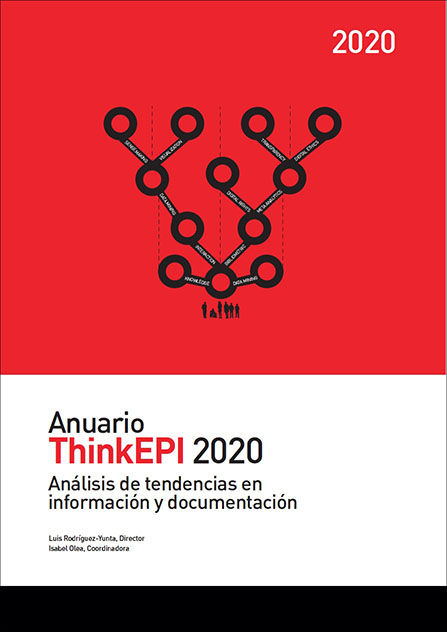Communities of practice for the "new normal"
DOI:
https://doi.org/10.3145/thinkepi.2020.e14d03Keywords:
Information management, Knowledge management, Virtual communities, Communities of practice, Communities of interest.Abstract
The health and economic crisis that we are currently experiencing has led to increased appreciation of the concept of community in a broad sense. It has also restored communities of practice and interest as strategies to share information, knowledge, experience, and good practice, so that companies and businesses can adapt to new scenarios resulting from the crisis.
Downloads
References
Armstrong, Arthur; Hagel, John (2000). "The real value of online communities". In: Lesser, Eric L.; Fontaine, Michael A.; Slusher, Jason A. (eds.). Knowledge and communities, pp. 85-98, Boston: Butterworth-Heinemann. ISBN: 978 0 7506 7293 1
Kropotkin, Pí«tr (1920). Mutual aid. A factor of evolution [Edición en castellano. El apoyo mutuo. Un factor de la evolución. Mostoles: Ediciones Madre Tierra, 1989]
Maslow, Abraham H. (1962). Toward a psychology of being. New York: John Wiley and Sons, Inc.
McDermott, Richard (2001) Knowing in community: 10 critical factors in building communities of practice. http://www.a-i-a.com/capital-intelectual/KnowingInCommunity.pdf
Sanz-Martos, Sandra (2012). Comunidades de práctica. El valor de aprender de los pares. Barcelona: Editorial UOC
Sanz-Martos, Sandra (2013). "Comunidades de aprendizaje: tendencia 2013". Anuario ThinkEPI, v. 7, pp. 24-27. https://recyt.fecyt.es/index.php/ThinkEPI/article/view/30325
Downloads
Published
How to Cite
Dimensions


